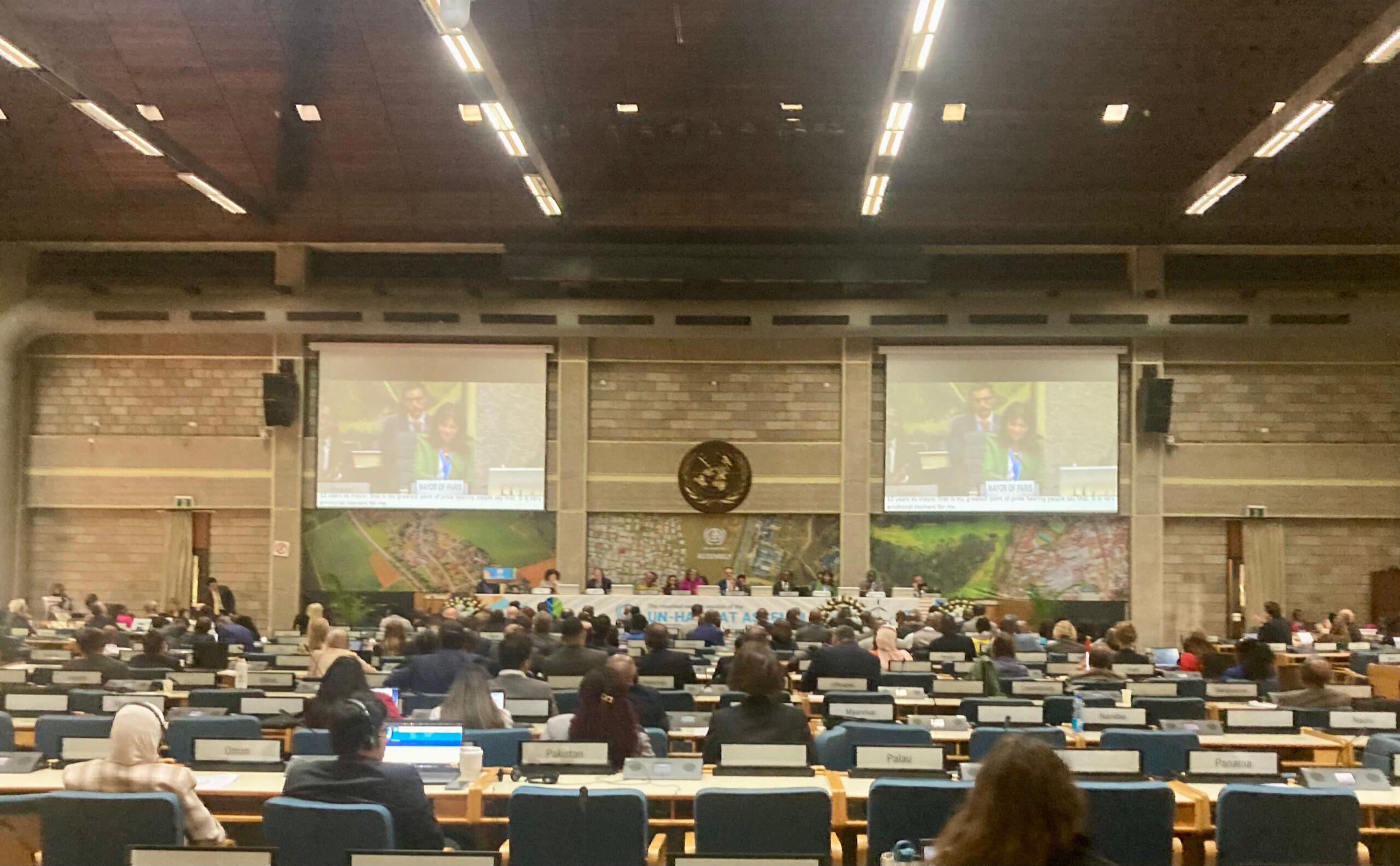UCLG Reaffirms Commitment to Housing Justice and the Indispensable Role of Local and Regional Governments at UN-Habitat Assembly resumed Second Session
03.06.2025

United Cities and Local Governments (UCLG), representing the organized constituency of local and regional governments, actively participated in the resumed second session of the UN-Habitat Assembly, which concluded with the adoption of the new Strategic Plan 2026–2029. The Plan places access to adequate housing, land, and basic services at the center of global urban policy, aligning closely with the agenda of local and regional governments worldwide.
Strengthening local and regional governments’ priorities at the Global Stakeholder Forum
Ahead of the resumed session of the UN-Habitat Assembly, the Global Stakeholder Forum, co-chaired by United Cities and Local Governments (UCLG), gathered over 600 participants from civil society, local and regional governments, academia, and the private sector. The Forum served as a critical platform for shaping common messages and building bridges across constituencies in support of inclusive and sustainable urban development.
Through this process, UCLG and the broader local and regional government constituency reaffirmed the importance of a differentiated and structured approach to stakeholder engagement within UN-Habitat. They stressed that meaningful participation—grounded in self-organization and political recognition—must go beyond consultation, enabling stakeholders to influence decision-making processes at all levels. This, in short, means that the institutional and political role of local and regional governments in global urban governance deserves distinct recognition within the broader stakeholder framework. UCLG conveyed the outcome declaration of the Forum to the Open-ended Committee of Permanent Representatives (OECPR-3) that served as a preparatory process for the Assembly.
Public service provision at the frontline of the UN-Habitat Assembly
Anne Hidalgo, Mayor of Paris and UCLG ambassador for the Future of Planet, addressed the Assembly in its high-level opening segment, emphasizing the importance of integrating housing within local public service provision, and underscoring the leadership of cities in addressing climate challenges and guaranteeing people-centered and climate resilient solutions to the housing crisis grounded on local public service provision.
In turn, UCLG Secretary General Emilia Saiz addressed the Assembly on the occasion of the High-Level Dialogue on Housing, where she highlighted that the housing crisis is not only a matter of infrastructure, but one of dignity, inequality, and social cohesion. She emphasized that access to adequate housing must be recognized as a human right, essential for inclusion and resilience, and the need of creating enabling multilevel coordination environments with local and regional governments not as mere implementers but as co-creators of housing policies—placing care, equity, and public service provision at the heart of a renewed social contract.
Advancing the financing agenda for territories
On the sidelines of the Assembly, Governor Peter Anyang’ Nyong’o of Kisumu and Clare Hart, Vice-President of Montpellier Méditerranée Métropole, participated in the first session of the International Financial Institutions Working Group on Subnational Finance. They recalled the importance that international financial institutions must go beyond lending and act as development partners, providing the technical assistance, capacity building, and early-stage support that make future large-scale investments possible, sustainable, and impactful for cities. In the presence of UN-Habitat Executive Director Anacláudia Rossbach and representatives from major IFIs, the session addressed the need to scale up direct and just financing mechanisms that enable local and regional governments to implement transformative urban policies.
Local and regional governments at COP30
The UN Habitat Assembly outlined UN-Habitat’s 2025 climate milestones for the year, and in particular towards COP30 in Belem. The LGMA, together with UN-Habitat and Brazil’s Ministry of Cities, is working with the COP30 Presidency to develop a dedicated space for local and regional governments in Belem, and to build momentum beyond the #Champ Initiative.
Housing at the core of UN-Habitat’s new strategic vision
The UN-Habitat Strategic Plan 2026–2029, adopted during the session, sets a renewed focus on access to adequate housing, land, and basic services for all, responding to the urgent need to transform informal settlements and strengthen territorial cohesion. Framed around three main impact areas—inclusive prosperity, crisis response and recovery, and climate action—the Plan highlights housing as a key lever to deliver on global development goals.
Anne Hidalgo, Mayor of Paris, addressed the importance of integrated housing within local public service provision and highlighted the need for building coalitions and ensuring multilevel coordination. Johnson Arthur Sakaja, governor of Nairobi, underscored how housing is seen as more than just a policy priority—it is central to human dignity, social inclusion, and community development.
UCLG stressed that local and regional governments are not merely implementers, but political partners essential to shaping policies, delivering public services, and building solutions rooted in the realities of communities. Strengthening their role within the multilateral system is key to achieving the ambitions of UN-Habitat’s Strategic Plan and ensuring truly inclusive and effective global decision-making.
As we approach the 10th anniversary of the New Urban Agenda, UCLG welcomes the Plan’s alignment with local priorities as well as its recognition of the importance of multilevel governance and remains fully engaged in shaping urban policy grounded in human rights, care, and community leadership—working with UN-Habitat and partners to build a multilateral system that is just, inclusive, and reflects the realities of our cities and territories.